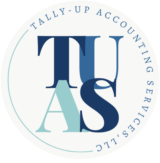As we discussed last month, the new year is a prime time for new businesses. We covered key elements to consider when opening a new business, such as getting your EIN, selecting accounting software, deciding your payment terms, and considering estimated tax payments (you can review January’s blog here). This month we will continue the discussion of new business essentials with reviewing NM Gross Receipts Tax, Expense Planning, and Hiring Employees. Let’s get started!
NM GRT
We talked about estimated tax payments, but it’s worth the time to review New Mexico Gross Receipts Tax (NMGRT). Gross Receipts Tax is a tax applied to a company’s gross sales and in New Mexico, the amount varies throughout the state. Currently, the rates vary from 5.125% to 9.4375% largely because the rate combines state, county, and municipal taxes. So how do you know what to charge? Businesses generally use the tax for the location where the goods or services are delivered. So, if you are selling your product or service throughout the state, you may be charging different rates for different customers. Plus, if you are shipping out of state, there are likely different tax obligations. Also note that if your client resells your product, you may not tax them at all and you may need to obtain a Non-Taxable Transaction Certificates (NTTC) for that client.
While this all may seem overwhelming, this is where good accounting software and the advisement of an accountant can simplify your billing process and prevent future headaches!
Expense Planning
Before you open your doors and make your first sale, you will have expenses to consider. While you will not have historical expense information to forecast with, you should still build a budget to stay on track. Do your research on what the essentials will cost and be sure to anticipate the small things, as they can add up and cause you to bust your budget. The most important reason for this process is to make sure you can actually afford to do what it is that you want to do in the time period that you want to do it in.
Consider if you will be able to afford to pay yourself. Many business owners find that revenue in the early phases of a business do not allow to owner salary. Be prepared to financially handle the possibility of this situation.
While your drive may want you to launch big, your financial resources may require you to slow your plan.
Discuss with your accountant on how you should classify your expenditures – as expenses or as assets. Not sure what the difference is?
- Expenses: The general definition of an expense is a purchase that company has used during the specified accounting period, such as paper, utilities, etc. Expenses will hit your P&L statement for the year they are made in.
- Assets: An asset generally a larger purchase that the company will use for multiples years. An asset would also be an item that adds value to your company and would be considered if you sold your company, such as buildings or equipment. Assets are recorded on your Balance Sheet and are depreciated over time, rather than having the full expense hit in one year.
There is a lot of gray area with some items, such as computers, and there is solid guideline on when a purchase becomes an asset versus an expense. Work with your tax accountant to see what makes the most sense for your business.
Hiring Employees
It’s not uncommon for new business owners to manage multiple roles when they first open a business. If you do have the ability to hire employees early in your business, here are few things to consider:
- What is the current job market like?
What the job market is like in your industry? Can you afford to pay a competitive wage for the level of qualifications that you need in your employees? While it may be tempting to hire friends and family, if they are not qualified to do the job, you may be hurting yourself in the long run if they can’t perform the level of work that you need. With a tight labor market, you will need to consider what benefits can you afford to attract and retain employees. While health and medical benefits may not be an option immediately you can get creative with what you can offer, such as flexible schedules and product discounts.
While you may be able to fill many roles yourself, it is important to get the help you need to avoid burnout and to get the expertise you may need in specific functional areas. If you cannot afford part time or fulltime employees, contractors may be the way to go so that you only pay for the hours you need versus trying to fill hours for an employee.
- Managing Payroll
Work with an accountant/bookkeeper to help determine what payroll system will work best for your business. While it may be tempting to pay your employees with cash, this can lead to major headaches later. You want to be sure that you can account for all expenses and ensure all appropriate taxes are taken out and under no circumstances should you pay employees or contractors “under the table.” Doing so will only result in disaster for employer and employee as you will have to pay all back taxes + penalties should you get caught.
Managing payroll can be a lot for a new business owner to handle on top of launching a new business. For start-ups and small businesses that can’t afford an in-house payroll expert, it may make sense to work with a payroll company to ensure paychecks are made on time, appropriate taxes are taken out and sent to the appropriate places, and the correct tax forms are filed. This is another area where your accountant can direct you to best options for your business.
- Contact a Human Resources consultant
A Human Resources expert can assist you with all areas of employment, including the expenses associated hiring employees, such as recruitment costs, benefits, workman’s compensation, etc. Working with a HR consultant can help you ensure you are following all legal requirements in hiring, plus they can help ensure you have the proper paperwork on file for your employees, like an I-9 and a W4. As your business grows, your HR consultant can assist with helping you stay in compliance with legislation, such as the Healthy Workplaces Act, and offering health benefits when you have 51+ consistent employees.
As you are setting up your business, be sure to capture as much data as possible in your accounting software. Gathering accurate and thorough information now will assist you in making strategic decisions in the future. Review this information regularly to identify areas of strength and areas to improve upon.
If you need assistance establishing your business’ accounting foundation, contact us at (505) 850-3908 or EstelaOms@tallyupaccounting.com

